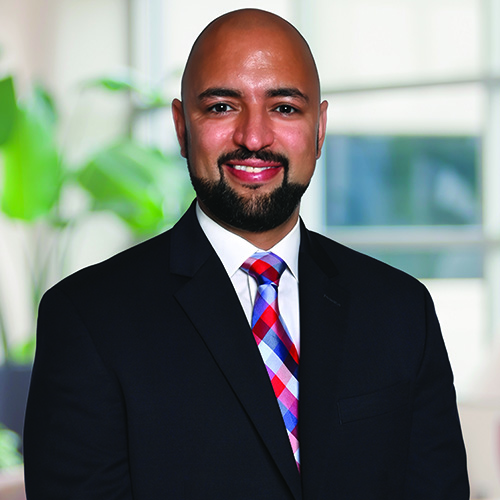One of the most important things you can do for your health is talking to your primary care provider (PCP) about your cancer risk and getting the recommended screening tests. This step is right up there with making other healthy choices, like eating right, exercising regularly, maintaining a healthy weight and avoiding tobacco.
“Your PCP is your partner in health. We want you to live your healthiest life, and doing that requires you to take action,” says Hamzeh Badwan, MD, Family Medicine Provider at Riverside Watseka Campus.
Early detection and possible prevention

Screening tests can help your PCP detect signs of cancer before you have symptoms, when treatment often works best.
Below are some of the common male cancers, along with the basics you need to know about getting checked for them. This isn’t a complete list, so ask your PCP which screening tests are right for you.
Colorectal cancer. Colorectal cancer is a leading cause of cancer deaths. In recent decades, colorectal cancer cases have been increasing among people under age 50. So, if you’re 45 or older, talk to your PCP about your options for screening, including a colonoscopy. Your PCP may want to screen you even sooner if your risk of developing the disease is increased because of a personal or family history of colorectal cancer, polyps, or irritable bowel syndrome.
Screening can not only detect colorectal cancer early, but it can also help prevent it from starting. That’s because colonoscopies allow doctors to find and remove colon polyps that could become cancerous.
Prostate cancer. Prostate cancer is one of the most common cancers found in men. The risk of developing this cancer increases for men over 50, for African American men and for men with a family history of prostate cancer.
Prostate cancer is often a slow-growing disease. Treating prostate cancer can cause sexual side effects and incontinence. For these reasons, experts recommend that men in their 50s talk to their PCPs about the pros and cons of prostate cancer screening. Men at higher risk should start that conversation at age 45.
Lung cancer. Smoking is the biggest risk factor for developing this serious disease. Detecting lung cancer early through screening can make a difference.
You’re at increased risk of developing lung cancer if you’re over age 50, you’re African American, you’ve smoked the equivalent of one pack a day for 20 years, or you still smoke or have quit within the past 15 years.
If you fall into one or more of these categories, you may qualify for yearly lung cancer screening using a low-dose CT scan of the chest.
And if you’re still a smoker, your PCP can help you quit.
“It’s important to be informed about what illnesses men are prone to and at what age you should be getting screened for those things,” says Dr. Badwan.
![]() Take control of your health
Take control of your health
Your provider can help you get the screenings that are right for you. Find a PCP who is a good fit for you at Riverside Primary Care and schedule your annual wellness exam today in the myRiverside MyChart.
Sources: American Cancer Society; Centers for Disease Control and Prevention